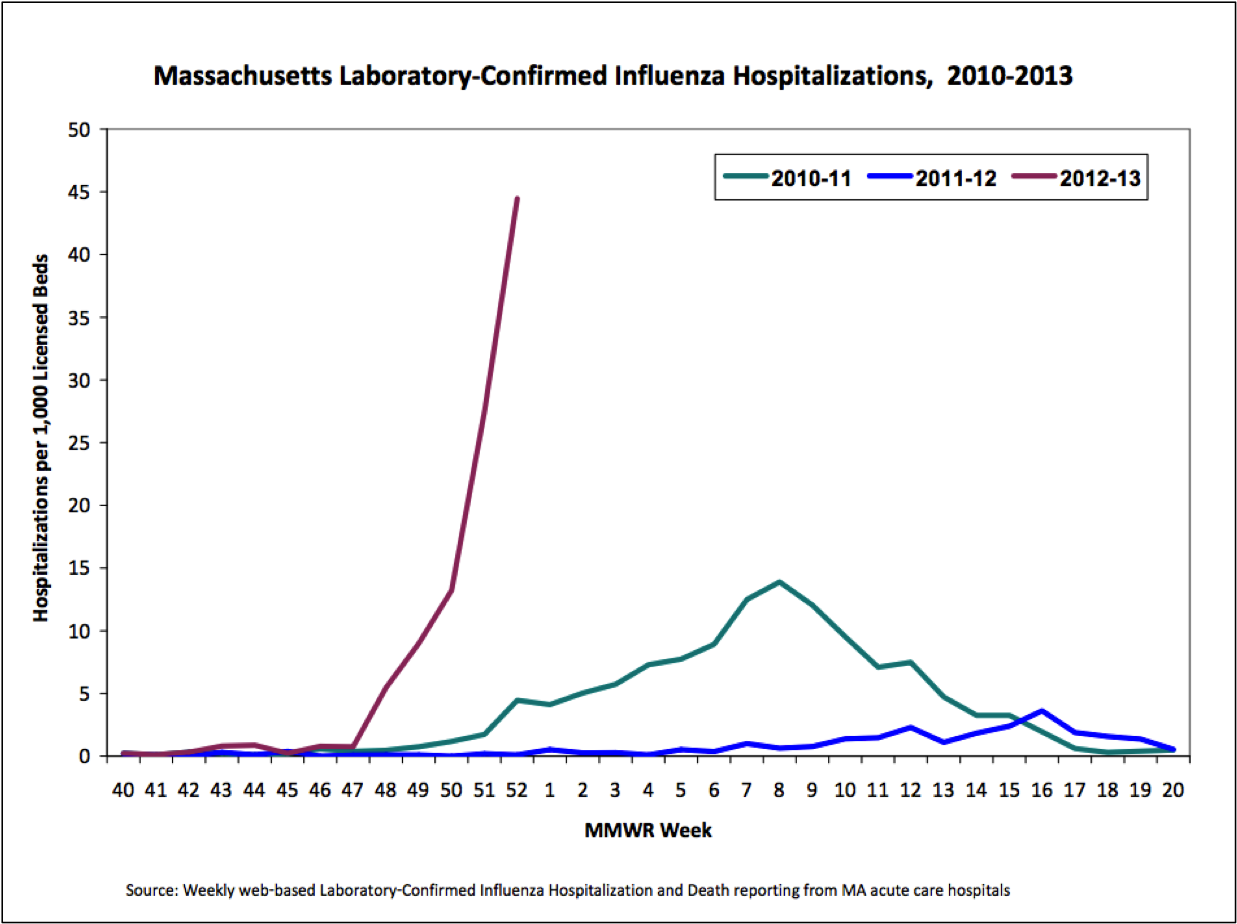

Amherst College students are back on campus after winter break, and many are bringing back more than just a tan from their vacation getaways. According to the Centers for Disease Control and Prevention (CDC), the biggest flu epidemic in ten years has been sweeping across the country. Twenty-nine states, including Massachusetts, have reported very high rates of influenza-like illness, which is characterized by a fever greater than 100 degrees Fahrenheit, chills, body aches and a cough or sore throat. While there have so far only been four reported cases of students being diagnosed at the College this semester, “it is very likely that a lot more haven’t shown up to Keefe [Health Center] but still have the flu,” said Dr. Warren Morgan, Director of Keefe Student Health Center.
In addition to the nationwide nature of the outbreak, this year’s flu season has been so notable is because of how uncharacteristically early it has started.
“Usually flu season starts sometime in February,” Dr. Morgan said. “This year it took off early and spiked quickly.”
By the end of December, 45 out of every 1000 hospitalizations in the state of Massachusetts were due to influenza, compared to two in 2011 and five in 2010. The reasons for this year’s flu being particularly strong in earlier months are unknown, according to Dr. Morgan.
In order to combat the rising sickness, Amherst has been handing out flu shots. Students have been calling Keefe to get immunized and can continue to do so. The Keefe Health Center Staff set up outside of Valentine Dining Hall last Friday in order to sign students up for flu shots, and it was a “great success,” with 66 students obtaining immunizations in around an hour.
Keefe Health Center hands out three different types of flu shots, intradermal, intramuscular and nasal spray. Which type a student receives depends on what is currently in stock, but Amherst “has enough to accommodate anyone who wants one,” Dr. Morgan said. However, a shot does not guarantee immunity.
“If someone had a flu shot but feels like they are displaying flu-like symptoms they still should get checked out,” Dr. Morgan said.
If individuals think they might have the flu, Dr. Morgan suggests not going to class for fear of infecting peers and professors. Instead they should go to the health center for an examination. They will give you a flu test. While not 100 percent accurate, the test will generally result in a correct diagnosis. The examination tests for Type A flu, as opposed to Type B flu. According to Dr. Morgan, the vast majority of influenza seen is Type A.
“If you are diagnosed we can prescribe you Tamiflu,” Dr. Morgan said. “This will cause your illness to last a shorter amount of time.”
However, Tamiflu and other anti-flu prescriptions have to be given within the first 24-48 hours of infection.
Now that people are back on campus and classes, sports, and other extracurricular activities have begun, Dr. Morgan expects the number of students with the flu to increase.
“On an average year we have usually have dozens of diagnosed cases of influenza. It could be a lot more this year due to the early start,” Dr. Morgan said.
Other than getting your flu shot, Dr. Morgan advises that you wash your hands frequently and use hand sanitizer frequently as well as sneezing into a tissue or your armpit. Perhaps most importantly, however, you should keep a safe social distance from anyone you suspect may be contaminated.
“Make sure not to sit next a wheezing person in class,” Dr. Morgan said.